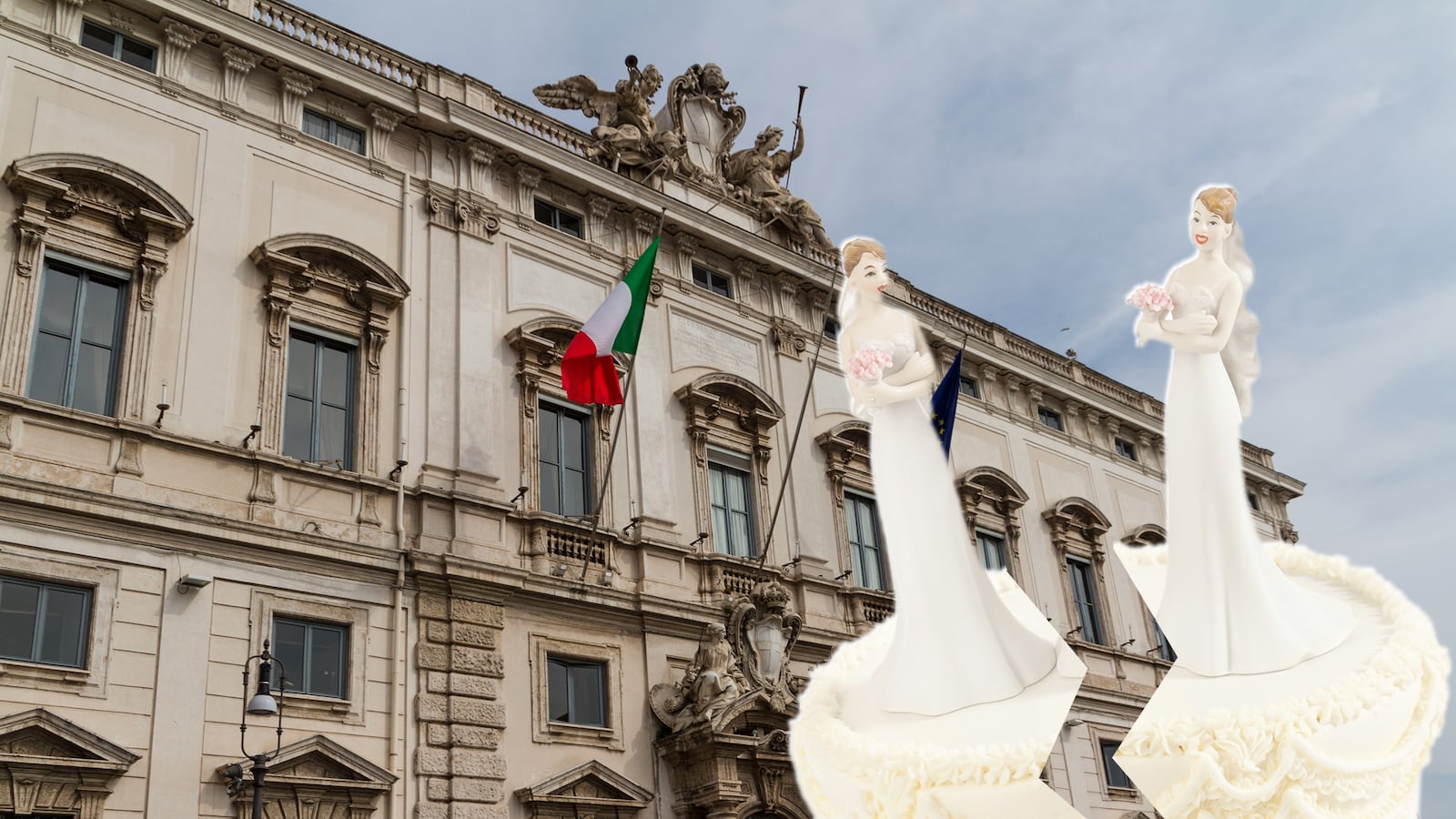When Alessandro Bernaroli met his wife-to-be, Alessandra, he knew he loved her despite his confusion over his gender. He felt trapped in a man’s body, but his love for Alessandra was so overpowering that he pushed his confusion aside. The two dated and eventually married in the Catholic Church and started their life together.
For 20 years, Bernaroli struggled openly with gender dysphoria, with his wife by his side. In 2009, they traveled to Thailand, where Bernaroli had sex reassignment surgery and became Alessandra, too. When Bernaroli officially changed her name and gender when she renewed her identity card, the Bologna court annulled the marriage. The couple appealed the unwanted divorce and lost again, but now Italy’s high court overturned the ruling, allowing them to stay married.
“It’s obvious that some things have changed in our marriage,” Bernaroli’s wife told the court. “But she is still the same person I married. We share the same ideals, and that’s what counts when you share a life together. We have survived because we have a strong love connection.”
Now the Italian state is facing a perplexing dilemma. By allowing the Alessandra Bernarolis to stay married, it essentially has given the green light to civil unions. In its ruling last week, the high court said it was aiming to balance “the State’s interest in not changing the model of heterosexual marriage with the interest of the couple where one of the two components changes sex.” The court also asked Italian lawmakers to explore an “alternative” form of marriage to accommodate such same-sex couples.
Italy has been inching away from the Catholic Church’s insistence not to recognize same-sex unions for months. The mayor of Rome, Ignazio Marino, even went so far as to hang rainbow-colored Christmas lights across Rome to support LGBT rights this year, and he marched in last week’s Gay Pride parade, promising a civil union registry for gays who marry abroad in Rome soon, in direct defiance of the Vatican’s conservative views. Still, the country has a long way to go. The Italian parliament has not been able to pass an anti-discrimination law for gays and lesbians despite several attempts. Adoption is not granted to same-sex couples. “We need to put pressure on parliament so Italy can overcome the shame of lagging behind the rest of the European Union,” Marino told revelers at the parade.
Several Italian cities, including Naples, already have a civil union registry. This month, the community of Grosseto agreed to recognize the same-sex marriage of two Italian citizens who wed in New York, even though same-sex marriage is still illegal in the country. And popular frozen food giant Findus caused a stir last week when it used an advertisement for frozen risotto to endorse gay rights by showing a son “coming out” to his Italian mamma.
Curiously, the Catholic Church has not officially annulled the Bernaroli union because it does not recognize gender reassignment and therefore still considers Bernaroli to be male, her gender when she was baptized. But the Alessandras now hope that Pope Francis will use their historic case to preach acceptance and maybe one day recognize same-sex unions. “The Catholic Church has said that our marriage is still valid,” Bernaroli said after the high court’s ruling. “We want to make an appeal to all Catholics to go out in the streets to defend the rights of the family, of our family. And also make an appeal to the pope, who seems so open and innovative, because he listens to so many people in trouble, the poor, the discriminated against. Why not call us, too?”






